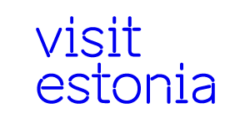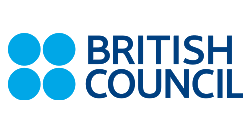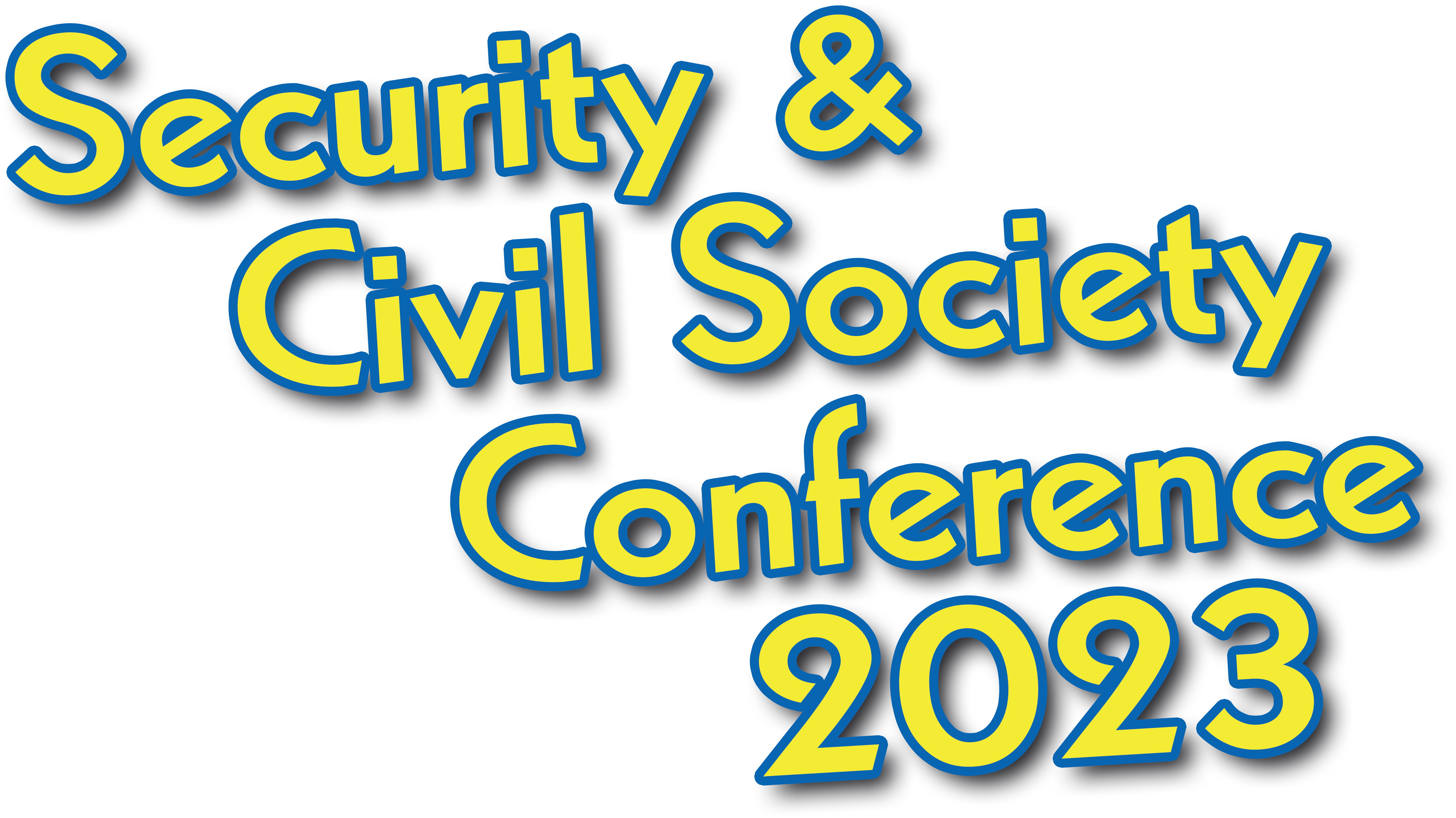CONFERENCE MODERATOR
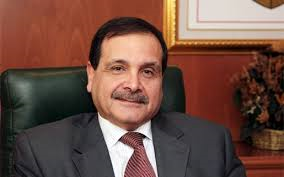 Ambassador Hatem Atallah (Tunisia)
Ambassador Hatem Atallah (Tunisia)
Coming from a rich diplomatic background that encompassed over 35 years, Ambassador Atallah was the Tunisian Ambassador in several countries including the US, the UK, South Africa and Ethiopia, He was also the Permanent Representative of Tunisia to the Organization of American States, the African Union, the Economic Commission for Africa, UNEP (United Nations Environment Programme), UN-Habitat, and the International Maritime Organization. He was appointed the Diplomatic Advisor to the Head of the Tunisian Government until February 2015. Ambassador Atallah participated in numerous summits, ministerial meetings and high level conferences of the African Union, the United Nations and the Union for the Mediterranean.
From March 2015 to December 2017 he served as Executive Director of the Anna Lindh Foundation for Dialogue between Cultures in the Euro-Mediterranean Region. Ambassador Atallah serves as Vice Président of the Euro-Med University (EMUNI) in Slovenia and member of the Senate. He also serves on the Board of Governors of the Gorée Institute in Sénégal and is a founding member of « AVASP » (Institute for Strategic Analysis and Prospective Studies – Tunis).
MAIN SPEAKERS
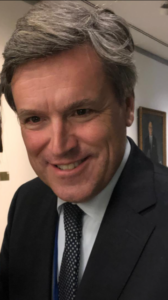
H.E. Herman Quarles van Ufford, Advisor to the USG of the United Nations; advisor on the commemoration of the 75th anniversary of the UN, UNHQ, New York (USA/Netherlands)
Herman Quarles van Ufford (53) is an advisor on the team of the Under-Secretary-General of the UN responsible for the preparations of the commemoration of the UN’s 75th anniversary, working at the UN headquarter in New York.
Previously, Mr. Quarles worked in various diplomatic capacities for the Dutch Foreign Ministry i.a. in the EU – and Middle East departments, at the Paris Embassy and in the Prime Ministers Office in The Hague. He received his Masters degree in International Public Law at the University of Groningen and followed the ‘Cycle Court at the French Ecole nationale d’Administration.
 Eili Lepik, Deputy Strategy Director of Strategy Unit, of Estonian State Chancellery (Estonia)
Eili Lepik, Deputy Strategy Director of Strategy Unit, of Estonian State Chancellery (Estonia)
Eili Lepik works as deputy strategy director at the Government Office of Estonia. Her main responsibility now is to lead the preparation process of the countries long term strategy “Estonia 2035”. Eili is also working with global sustainable development goals and Agenda 2030 coordination at the central government level. She has lead several sustainable development related projects, e.g. reform of Estonian Sustainable Development Commission, renewal of Estonian sustainable development indicators and compiling the Estonian review on implementation of 2030 Agenda.
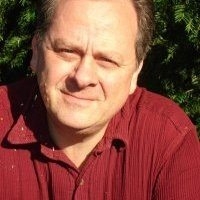 David Woollcombe, President of Peace Child International (UK)
David Woollcombe, President of Peace Child International (UK)
David Woollcombe is an author, playwright, film-maker and acknowledged expert on the field of youth participation in governance. He wrote and directed numerous performances of Peace Child across Europe, North America, the former Soviet Union and Central America. His academic publications include, “The Role of Children in Governance” and “Youth-led Development – Harnessing the energy of youth to make poverty history.” A founder and currently the President of Peace child international, he has worked as a consultant for UNDP, UNICEF, UNESCO and has published several publications for PCI and is the international director of World Youth Congress series. David led Peace Child International for 35 years as CEO, directing over 60 major productions and projects around the world. As President, and now as Chairman of the Board, he is intent to use his global contacts to ensure that the organisation moves to a new generation of leadership, equally committed to the central role that young people can play in our world.
 H.E. Dr. Nabil Al-Sharif, Executive Director of the Anna Lindh Foundation (Jordan/Egypt)
H.E. Dr. Nabil Al-Sharif, Executive Director of the Anna Lindh Foundation (Jordan/Egypt)
H.E. Nabil Al-Sharif’s extensive background in public service includes his posts as Minister of Media Affairs & Government Spokesperson in The Hashemite Kingdom of Jordan. He also worked as Editor-in-Chief of Ad-Dustour Arabic daily newspaper, a member of the Upper House of Parliament and Jordan’s Ambassador to Morocco, Mauritania and Senegal. H.E. Dr. Al-Sharif obtained his PhD and MA in English Literature from Indiana University in the US. He was also the cultural editor of a local Jordanian daily and wrote extensively both in Arabic and English on the need for enhancing inter-cultural dialogue. He taught at three Jordanian universities for a number of years.
EXPERTS

Jean Kostrzewski, London University (UK)
Jean Kostrzewski’s (French/Polish) academic background is a Masters in International Studies and Diplomacy at the School of Oriental and African Studies in London. He specializes in the understanding of the various impediments to global peace by focusing on the study of International Security or Risk and Policy analysis. His main field of expertise is the examination of the greatest drivers of conflict such as international political competition, economics, identity or lack of peaceful intercultural dialogue. As a member of the operations team of the SCRAP (Strategic Concept for the Removal of Arms and Proliferation) project, he has experience working with governmental and non-governmental stakeholders and advocates for the reframing of the debate concerning the strong correlation between peacebuilding operations and global disarmament. Furthermore, he actively participates in the campaigns and various projects of esteemed NGOs and charities such as UNICEF UK or DebateMate, defending the rights of the child and promoting social mobility.

Anahita Ghanbari Parsa, SCRAP campaign, (Iran/UK)
Anahita is currently taking a Masters in International Studies and Diplomacy at the Centre for International Studies and Diplomacy (CISD) at the School of Oriental and African Studies, University of London following up a BA in Politics and International Relations at SOAS. Of Iranian background, she has lived in the UK most of her life. During her BA course, she worked as a volunteer for SCRAP and the 5th Conference of the Parties to the Arms Trade Treaty and worked on Advocacy in the London office of SCRAP. She has also worked as an intern in the House of Lords and the House of Commons. She looks forward to raising the Role of Women in Conflict Resolution and Intercultural Peace-Building during this conference.
 Liis Paloots, Head of Office and Programme Officer, IOM Estonia
Liis Paloots, Head of Office and Programme Officer, IOM Estonia
During the ten plus years worked for IOM in Estonia, she has focused on capacity building in migration management, responses to irregular migration, action against human trafficking and also integration of migrants. IOM as the leading UN Migration Agency aligns its work closely with GCM and all SDGs, with particular focus on SDG 10.7, but has strong connection with many other SDGs. IOM activities include the promotion of international migration law, policy debate and guidance, protection of migrants’ rights. IOM provides peace-building and emergency response through mobility dimension. IOM has been invited on behalf of NGO Mondo’s “I am an European” to attend the discussion panel.
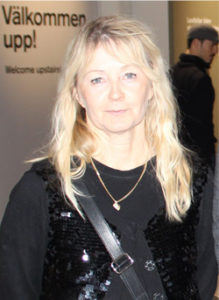 Mrs. Susanne Kallanvaara, Teacher at Burgårdens gymnasium, (Sweden)
Mrs. Susanne Kallanvaara, Teacher at Burgårdens gymnasium, (Sweden)
She has graduated as upper secondary teacher at Göteborg University in Sweden in 1984 and has a vast experience of teaching all levels of Swedish for immigrants up to university level. Currently employed at Munkebäcksgymnasiet in Göteborg. Has been active in the Swedish Anna Lindh network from the very start and has taken part in more than ten international projects within the European Life-Long Learning programme. The previous project at Munkebäcksgymnasiet ”Different Faces of Europe” was awarded both a national and a European quality label in the etwinning portal. Another on-going Erasmus+ project at the same school is ”Fundamental Rights in European Education (F.R.E.E.) and leading role EuroMed project inluding 10 countries “Euromed: Education without borders”. She deals with open and innovative education, training and youth work embedded in the digital era.
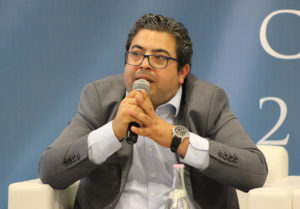 Annis Boufrikha, Head of Anna Lindh Foundation Tunisian Network / We love Sousse (Tunisia)
Annis Boufrikha, Head of Anna Lindh Foundation Tunisian Network / We love Sousse (Tunisia)
Anis Boufrikha from Tunisia, Sousse with a degree in international economics and then a master’s degree in entrepreneurship and another in creative entrepreneurship. He joined the African Development Bank in 2007 as a research assistant In charge of the bank’s database in NGOs in 2014, it launches its own development box through which it manages several projects and provides training related to socio-cultural development and governance as well as several other expertise related to project management and To associative governance In 2011 he created the association we love Sousse, once launched it multiplies the encounter and develops the idea of We love associations network which was officially created in February 2012 with the assistance of 10 Associations we love in 6 different countries In 2012 he was elected head of Tunisian network of Anna Lindh Foundation and he is currently coordinating several associations throughout Tunisia.
 Agne Kuimet, Executive Director at Estonian Roundtable for Development Cooperation, (Estonia)
Agne Kuimet, Executive Director at Estonian Roundtable for Development Cooperation, (Estonia)
Agne Kuimet is an expert on increasing Agenda 2030-connected cooperation between civil society organizations, private sector companies and policy makers. She has been focused on advocating and communicating for sustainable development goals and global citizen education both on national and EU level. As a director of national platform she represents SDGs oriented CSOs in the Commission for Sustainable Development at Government Office, as well as participates in the work of the Commission of Development Cooperation at Estonian MFA. As a national officer for an international consortium Bridge 47 she mobilizes civil society to contribute effectively to global justice and eradication of poverty through global citizenship education. Agne holds a master’s degree in both humanities and social sciences, her latest research has been connected with leadership in Estonian civil society.
 Benjamin Welling, Vice-Chairman of the European Democrat Students, (Germany)
Benjamin Welling, Vice-Chairman of the European Democrat Students, (Germany)
Benjamin Welling is 29 years old and Vice-Chairman of the European Democrat Students, the student organisation of the European People’s Party (EPP). He is currently studying history at the University of Hamburg with a focus on transatlantic relations and the historic development of societies in Europe.
Benjamin strongly believes that the future of European stability is closely linked to a believable narrative of personal economic growth for all it’s citizens. The failure of getting young people into the stable labor market in all parts of Europe is a danger to a pleasant future.
 Rudy Raes, Director of D’broej Centrum West, (Belgium)
Rudy Raes, Director of D’broej Centrum West, (Belgium)
Mr. Rudy Raes, from Ghent, Belgium, actual manager of D’Broej Centrum West, VZW, a multicultural youth organisation specialised in inclusive work with young people in precarious situation. Specialist in intercultural dialogue, inclusive and holistic approach of working with youngsters and learning through experience.
He is involved in experimental and sustainable youth work in West-Africa (Benin), based on continuing youth engagement. He is a multilingual and co-related with several organisations in Belgium representing different communities in Brussels.
 Liis Seeme Head of Development in the STEP-programme, (Estonia)
Liis Seeme Head of Development in the STEP-programme, (Estonia)Liis Seeme has a bachelor´s degree in Social Work and Rehabilitation Administration and is currently taking a Master´s in Business and Technology Management in the University of Tartu. She has worked with children who have special needs and also she has experience working with children who live in an orphanage. In the year 2018. she was a member of the Evaluation Committee at SA Innove, where they funded projects which developed key competences for adults. Up until last year she worked as a Head of youth guarantee in Estonian Unemployment Insurance Fund, where she managed different services for youth and cooperated with several youth organizations. Right now she is the Head of Development in the STEP-programme. STEP-programme deals with young people aged 15-26 who have committed a misdemeanor or criminal offence. They help them to find a job or a suitable educational path. STEP- programme brings together young people, responsible employers, educational institutions, third sector organizations and public authorities.

Ouafa Belgacem, CEO and Founder of Culture Funding Watch (France/ Tunisia)
Ouafa Belgacem is an expert in Resources Mobilization and sustainability and a researcher interested in topics related with arts and culture entrepreneurship, funding, cultural policies and art financial engineering. She is the founder and CEO of Culture Funding Watch the leading Art funding intelligence platform in the MENA region. She is also the creator of the www.cceindex.com the cultural and creative enterprises global index. She holds four Masters degrees in History, Archaeology, MBA and Heritage Management. She has work experience in the Middle East, Africa and Asia. Prior to founding Culture Funding Watch she worked with Oxfam GB as Regional Funding Coordinator in Myanmar and West Africa. Previously she worked with SNV in Laos as Senior Business Development Advisor and as Assistant to the Head of Finance and Contract Section for the European Commission Delegation in Cairo. Ouafa was also assigned as head of fundraising unit within the Supreme Council of Antiquities of Egypt. She is the writer of several global reports: UNESCO special report on creative economy 2013, Compendium of cultural policies in the Arab region 2010, CS report on 2005 convention 2019, Cultural policy in the MENA region (UNESCO) 2019. She is board member of the CS interim steering committee for the UNESCO 2005 convention and Vise president of Tunisians startup association. Ouafa has been one of the international experts to assist in the evaluation of proposals submitted for funding to the UNESCO’s International Fund for Cultural Diversity as well as the Tfanen EU programme in Tunisia.
 Ekaterina Alekseeva, Civic chamber of the Republic of Karelia (Russia)
Ekaterina Alekseeva, Civic chamber of the Republic of Karelia (Russia)
Ms. Ekaterina Alekseeva Expert of the information and analytical Center, member of the Civic chamber of the Republic of Karelia (Russia) Ms. Alekseeva completed a postgraduate course in education at the Karelian state pedagogical University (Petrozavodsk) and graduated from the Public diplomacy corps program at the MGIMO European University (Moscow). For more than 15 years, Ekaterina Alekseeva has been working in NGOs on the issues of youth policy, civic education, and intercultural communications. She was one of the founders of the Youth Parliament of the Republic of Karelia in 2011, then headed it. Ms. Alekseeva was chosen as a deputy from the Republic of Karelia to the Youth Parliament of the State Duma of the Russian Federation for 2013-2015. Ekaterina Alekseeva is the head of the Center for intercultural communication and civic education, Participant of various international projects, Scientist-Researcher of social transformations.

Aliine Lotman, digital literacy expert, NGO Mondo (Estonia)
With a background in anthropology and technology governance, Aliine is keen on understanding human-technology relationships. During the ten years spent at NGO Mondo, she has worked with global education, development cooperation and humanitarian aid matters. During recent years, her main topic has been the digital skills of refugees and other vulnerable groups, coordinating the development and piloting of a digital competencies package deployed in Uganda, Jordan, and Syria. She is currently improving her own digital skills by studying front-end development.
 Marten Kaevats, Estonian National Digital Advisor, Estonian State Chancellery
Marten Kaevats, Estonian National Digital Advisor, Estonian State Chancellery
He is the National Digital Advisor of Estonia, a role that is informed by his former life as an architect: “Architecture and city planning is thinking about complexity and complex systems, so I ended up in digital policy.” And he is passionate about building a transparent government – so transparent, in fact, that it is “invisible”. Government services should be so seamless that they do not intrude or impose on citizens’ lives, he believes: “The best service is something that you even didn’t notice you got.”
 Ph.D. Liia Hänni, Senior Expert on e-Democracy, E-Governance Academy, (Estonia)
Ph.D. Liia Hänni, Senior Expert on e-Democracy, E-Governance Academy, (Estonia)
Liia Hänni is physicist by education; she holds a Ph.D. degree. She worked 20 years in science doing research on astrophysics. During revolutionary events in Estonia at the beginning of the nineties of the last century, Liia became actively involved in politics as a Member of Parliament and Cabinet Minister responsible for property reform. She has been active on constitutional and the EU affairs. From the beginning of 2005 Liia Hänni is involved in the e-democracy program of e-Governance Academy. She promotes use of ICT for democratic governance and empowerment of citizens.
 Kai Klandorf, Executive Director of Estonian Nonprofit Organizations
Kai Klandorf, Executive Director of Estonian Nonprofit Organizations
Kai is the executive director of Network of Estonian Non-profit Organizations and a SpeakSmart trainer, freelance coach and consultant. He holds a Master’s degree in English Studies from the University of Tartu and has been leading the international cooperation field of the Estonian Debating Society. During this time, Kai has helped develop debating movement in countries like Nepal, Norway, Moldova, Myanmar, etc. In addition, he has been President of the Board of the IDEA International Debate Education Association. Kai has worked as a teacher at Leie Basic School and Rapla Vesiroosi Gymnasium. At the National Institute for Health Development, Kai ran one of the largest evidence-based universal prevention programs.
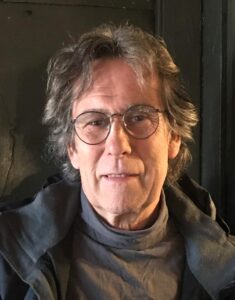 Jonathan Hart, expert of UNICEF (UK)
Jonathan Hart, expert of UNICEF (UK)
Jonathan Hart works for UNICEF UK on the Rights Respecting School Award programme, where he was previously Education Team Manager. His teaching career has been in primary, secondary and special schools, and in teacher training, as a Principal lecturer and former Director of the Post Graduate Certificate for Education at St Mary’s University College, Strawberry Hill, London. His Master of Philosophy degree was in cognitive social psychology, and his research into the self esteem of children was published in the British Journal of Educational Psychology. He is a founder member of the HRE4ALL (Human Rights for all) alliance which is a campaigning group for Human Rights Education as an entitlement for all children, everywhere. He is also a member of the Human Rights working group for Oxfam’s OSW (Our Shared World) strategy which is to advocate for quality education for sustainable development and global citizenship (ESDGC) as described in Sustainable Development Goal 4 .7.
 Katrin Isotamm, Communication Director of Telia Estonia
Katrin Isotamm, Communication Director of Telia Estonia
Katrin Isotamm is a communications practitioner with over 20 years of professional industry experience including media relations, corporate and financial communications, change management, employee engagement, branding and marketing. She has worked as a consultant as well as led led different communications teams inhouse in the Baltics and Scandinavia, including working as Head of Corporate Communications for Swedbank Group. Currently, Katrin is the Director of Communications at Telia Estonia responsible for the company´s communications- and CSR strategy. Telia has been an active promoter of SDGs across its footprint since the birth of these 17 goals. Via working actively with further digitalization of local societies and businesses, the company has integrated SDGs into its business strategy and also actively seeks initiatives and partnerships for broader related societal projects tackling both opportunities and risks of digitalization.

Andrius Bečys, CEO of GoalHUB.net (Lithuania)
Mr Becys is an NGO financing and management expert with years of experience coordinating national and international CSO networks, predominantly between African, Asian and European countries. In the last couple of years, he focuses on the development of GoalHUB – the platform that is creating reliable, transparent and instant networks for crisis relief. In 2017 Platform was nominated as one of the winners in World Government Summit (Dubai) and described „as one of the most promising initiatives to help implement UN SDGs”.
 Eva Lennuk, Estonian UN youth delegate, Law student of Tartu University, (Estonia)
Eva Lennuk, Estonian UN youth delegate, Law student of Tartu University, (Estonia)
Eva Lennuk, is 20 years old and currently and student in Law school at the University of Tartu, Estonia. As a UN youth delegate of Estonia she have set the priority for my legacy on development of youth participation on local level. She firmly believe, that gaps in youth participation exist in most countries and they can filled with the help of multilateral cooperation. Coming from an e-country it is also my goal to discuss the topic of cyber security from the perspective of youth. She was the youth delegate of Estonia in the Council of Europe Congress sessions in 2018. In Estonia she has been carrying out multiple youth projects related to multicultural education, communication etc. Coming from a region with low voter turnout, She has been contributing to various projects and events in order to increase the turnout.
 Mrs. Kristi Klaas, Deputy Secretary General, Estonian Ministry of Environment
Mrs. Kristi Klaas, Deputy Secretary General, Estonian Ministry of Environment
Kristi is the Deputy Secretary General of the Ministry of the Environment of Estonia and she is responsible for strategical planning and climate change policy. Currently, under her responsibility the negotiations are ongoing on the achievement of 2030 climate goals and setting the targets for 2050.
Previously she has worked as a diplomate at the Permanent Representation of Estonia to the OECD in Paris and to the EU in Brussels.
 Bruno Felgentreu, International Secretary of RCDS, (Germany)
Bruno Felgentreu, International Secretary of RCDS, (Germany)
Bruno Felgentreu is 22 years old and currently studying the graduate political science program in the Technical University of Dresden, Germany. He is specializing on constitutionalism and global governance in his academics. He is the current international secretary of the Ring of Christian-Democrat Students (RCDS) Germany and represents the organisation as a Council Member of the European Democrat Students (EDS), the official student organisation of the European Peoples Party (EPP). He believes in the need for higher investments in research and development and implementing effective multilateral policies to fight climate change on a global level. It is of utmost importance to use Europe’s most important resource, it’s wide array of excellent higher education institutions and research landscape in order to live up to its commitments to the world.
 Kadi Kenk, Let’s Do It Foundation (Estonia)
Kadi Kenk, Let’s Do It Foundation (Estonia)
Kadi Kenk is a member of the management board of Let’s Do It Foundation. Her organisation focuses on scaling solutions that reduce waste and support material circularity. Their current programs involve working with municipalities and community leaders for making a successful ‘Keep It Clean Plan’. Kadi often performs as public speaker on community engagement and circular economy.
 Jane Õispuu Head of Political Team at the European Commission Representation in Estonia
Jane Õispuu Head of Political Team at the European Commission Representation in Estonia
Jane Õispuu is the Head of Political Team at the European Commission Representation in Tallinn. Main focus of her work lies on Commission’s priorities as defined by President Ursula von der Leyen for 2019-2024, notably climate change, energy, and migration. In her previous positions at the Commission, she was in charge of inter-institutional relations in the domain of EU external policies, briefings for President Juncker and multiannual financial framework. Jane Õispuu holds a PhD in political science from the University of Tübingen, Germany.
 Mr. Patrik Björehag, teacher at Burgårdens gymnasium (Sweden)
Mr. Patrik Björehag, teacher at Burgårdens gymnasium (Sweden)
Patrik Björehag has studied at Uppsala University with specialization on social and political studies, including human geography. He has a special interest in human cooperation across, between, as well as within societies. Currently he is working as an upper secondary school teacher in Sweden and interested in international cooperation especially in climate issues.

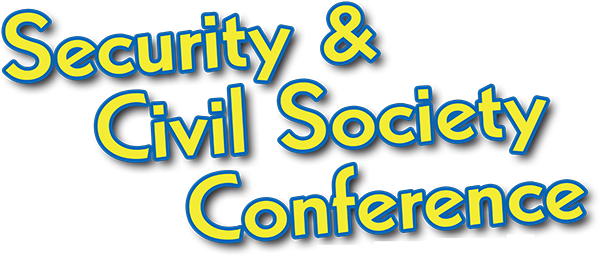



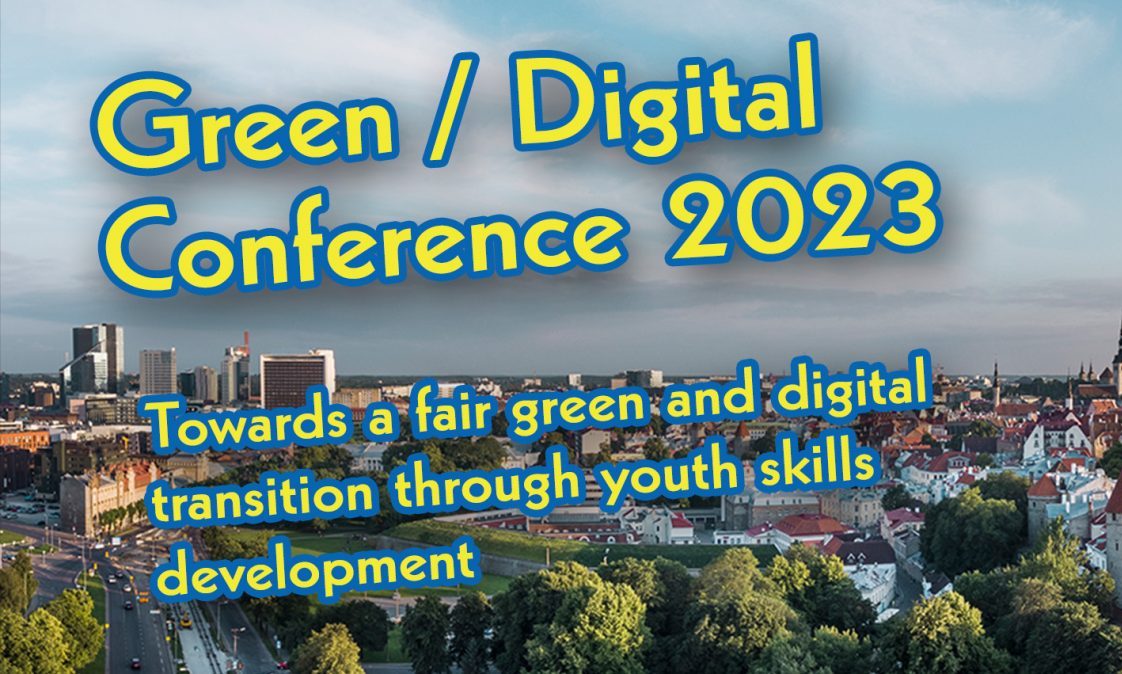
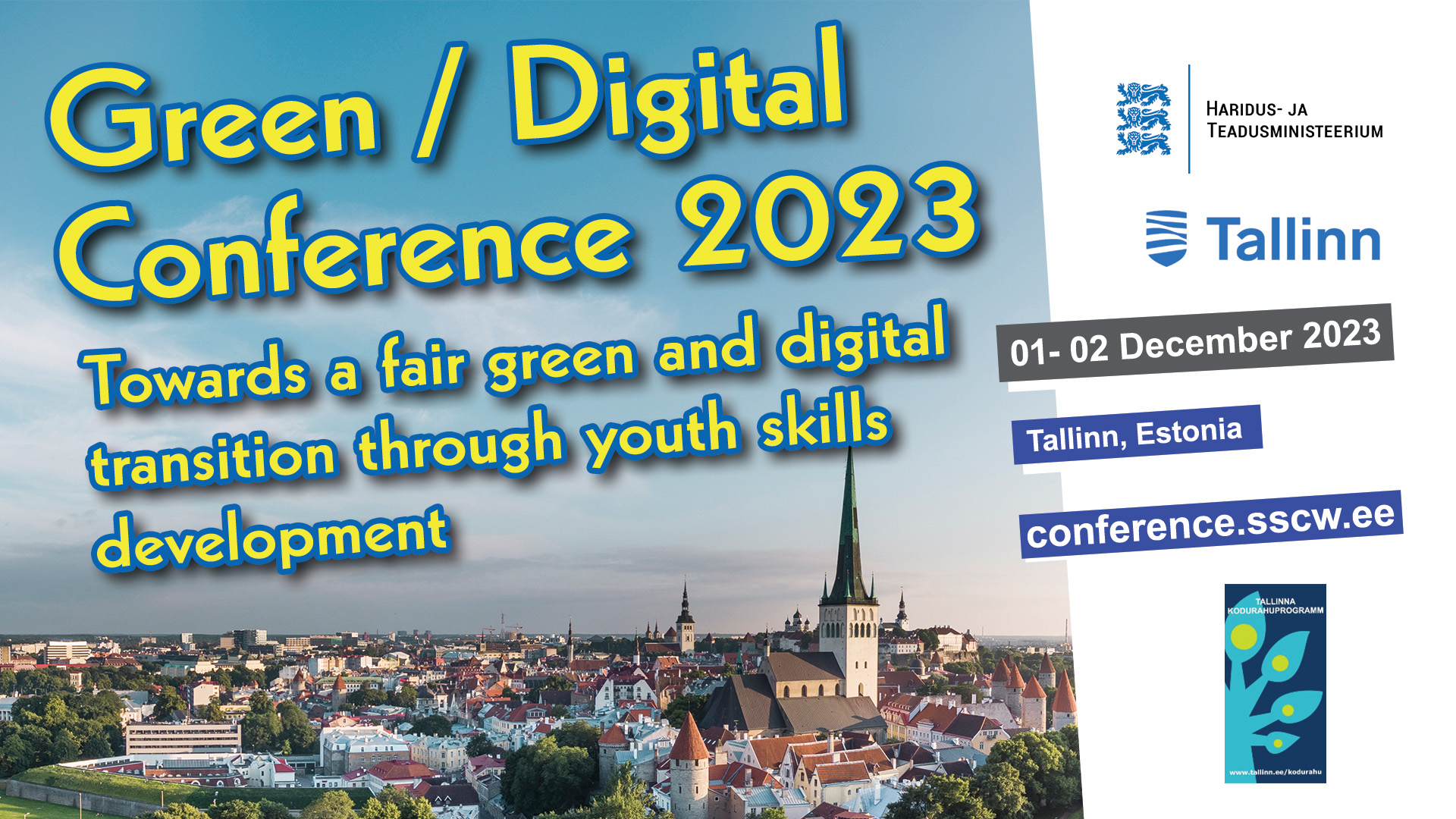
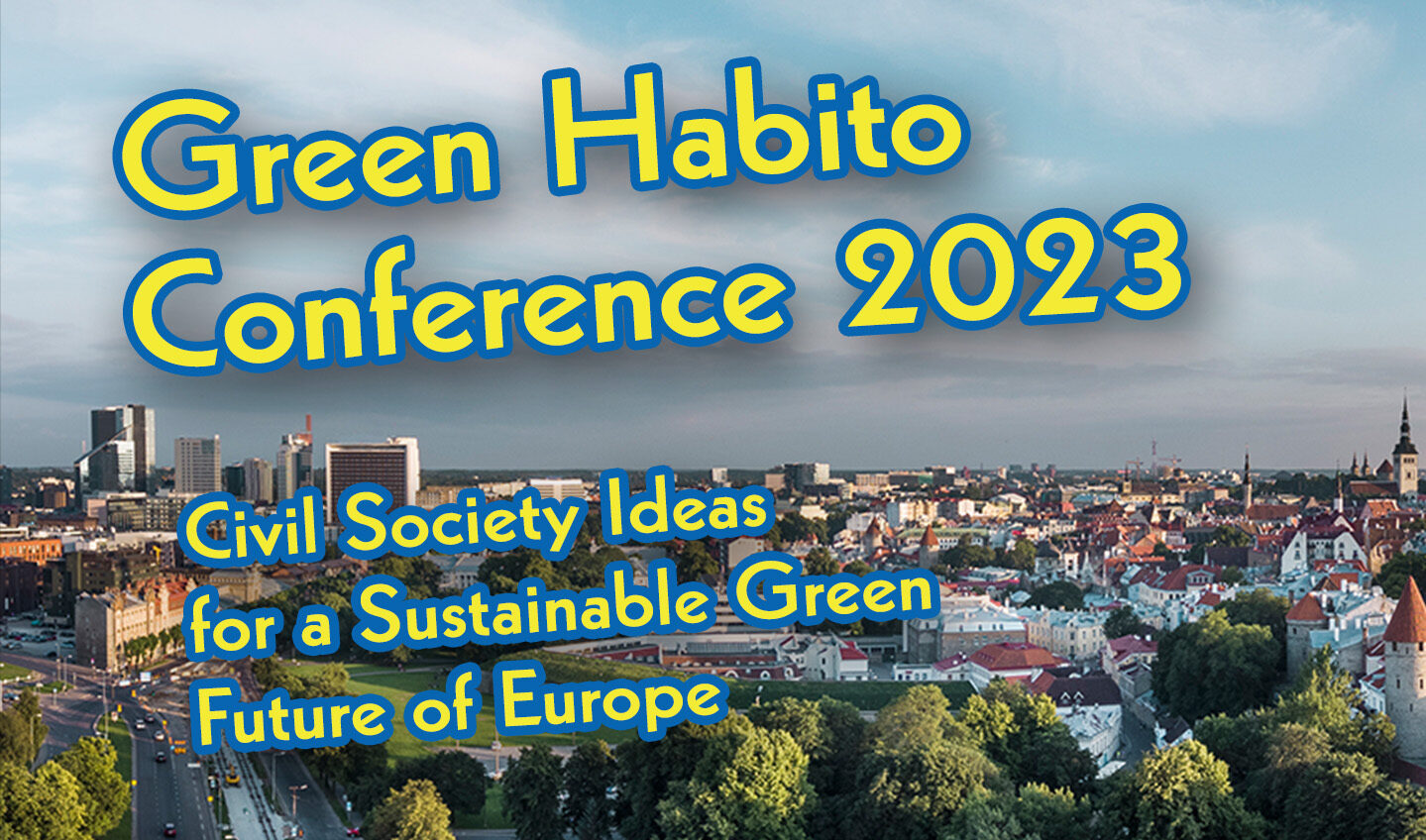
 Ambassador Hatem Atallah (Tunisia)
Ambassador Hatem Atallah (Tunisia)
 Eili Lepik, Deputy Strategy Director of Strategy Unit, of Estonian State Chancellery (Estonia)
Eili Lepik, Deputy Strategy Director of Strategy Unit, of Estonian State Chancellery (Estonia) David Woollcombe, President of Peace Child International (UK)
David Woollcombe, President of Peace Child International (UK) H.E. Dr. Nabil Al-Sharif, Executive Director of the Anna Lindh Foundation (Jordan/Egypt)
H.E. Dr. Nabil Al-Sharif, Executive Director of the Anna Lindh Foundation (Jordan/Egypt)

 Liis Paloots, Head of Office and Programme Officer, IOM Estonia
Liis Paloots, Head of Office and Programme Officer, IOM Estonia Mrs. Susanne Kallanvaara, Teacher at Burgårdens gymnasium, (Sweden)
Mrs. Susanne Kallanvaara, Teacher at Burgårdens gymnasium, (Sweden) Annis Boufrikha, Head of Anna Lindh Foundation Tunisian Network / We love Sousse (Tunisia)
Annis Boufrikha, Head of Anna Lindh Foundation Tunisian Network / We love Sousse (Tunisia) Agne Kuimet, Executive Director at Estonian Roundtable for Development Cooperation, (Estonia)
Agne Kuimet, Executive Director at Estonian Roundtable for Development Cooperation, (Estonia) Benjamin Welling, Vice-Chairman of the European Democrat Students, (Germany)
Benjamin Welling, Vice-Chairman of the European Democrat Students, (Germany) Rudy Raes, Director of D’broej Centrum West, (Belgium)
Rudy Raes, Director of D’broej Centrum West, (Belgium) Liis Seeme Head of Development in the STEP-programme, (Estonia)
Liis Seeme Head of Development in the STEP-programme, (Estonia)
 Ekaterina Alekseeva, Civic chamber of the Republic of Karelia (Russia)
Ekaterina Alekseeva, Civic chamber of the Republic of Karelia (Russia)
 Marten Kaevats, Estonian National Digital Advisor, Estonian State Chancellery
Marten Kaevats, Estonian National Digital Advisor, Estonian State Chancellery Ph.D. Liia Hänni, Senior Expert on e-Democracy, E-Governance Academy, (Estonia)
Ph.D. Liia Hänni, Senior Expert on e-Democracy, E-Governance Academy, (Estonia) Kai Klandorf, Executive Director of Estonian Nonprofit Organizations
Kai Klandorf, Executive Director of Estonian Nonprofit Organizations  Jonathan Hart, expert of UNICEF (UK)
Jonathan Hart, expert of UNICEF (UK) Katrin Isotamm, Communication Director of Telia Estonia
Katrin Isotamm, Communication Director of Telia Estonia
 Eva Lennuk, Estonian UN youth delegate, Law student of Tartu University, (Estonia)
Eva Lennuk, Estonian UN youth delegate, Law student of Tartu University, (Estonia) Mrs. Kristi Klaas, Deputy Secretary General, Estonian Ministry of Environment
Mrs. Kristi Klaas, Deputy Secretary General, Estonian Ministry of Environment Bruno Felgentreu, International Secretary of RCDS, (Germany)
Bruno Felgentreu, International Secretary of RCDS, (Germany) Kadi Kenk, Let’s Do It Foundation (Estonia)
Kadi Kenk, Let’s Do It Foundation (Estonia) Jane Õispuu Head of Political Team at the European Commission Representation in Estonia
Jane Õispuu Head of Political Team at the European Commission Representation in Estonia Mr. Patrik Björehag, teacher at Burgårdens gymnasium (Sweden)
Mr. Patrik Björehag, teacher at Burgårdens gymnasium (Sweden)

